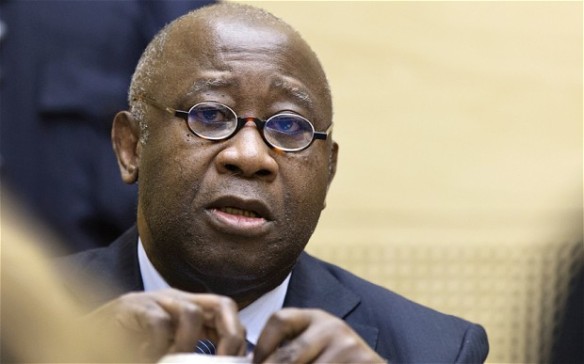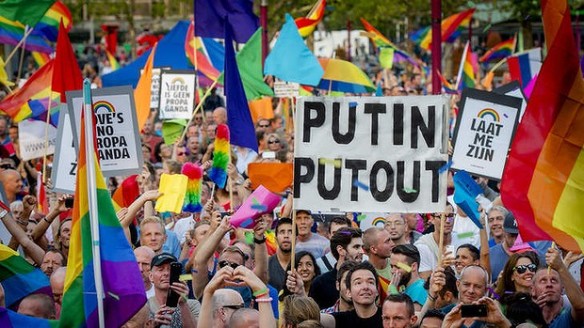Beyond The Hague welcomes the Peace and Justice Initiative and the University of Connecticut’s Human Rights Institute for this guest post, which proposes an amendment to the ICC’s Rome Statute to broaden the ambit of article 25(3)(e) to criminalize not only the incitement of genocide, but also crimes against humanity, war crimes and (potentially) the crime of aggression.
In the lead-up to the annual meeting of the States Parties to the International Criminal Court in December 2017, it is imperative for states, NGOs and other interested parties to pay close attention to efforts to reinforce the Court’s preventive function by addressing incitement and hate speech. The criminalization of speech acts has become a major issue in recent times. With the rise of populism in the United States and the United Kingdom, questions have arisen as to the boundaries between lawful and unlawful speech. Some domestic authorities have undertaken to severely repress speech acts; which will inevitably result in litigation over the parameters of the right to freedom of expression.
The international courts are no strangers to these issues, having dealt with several cases concerning allegations of speech acts contributing to atrocity crimes. Given its potential global jurisdiction, the international criminal court can play a leading role in regulating hateful and inciting speech. Focussing on verbal acts before they escalate to physical violence will directly enhance the Court’s preventive function. Accordingly, the following proposal seeks to address the most serious forms of unlawful speech.
The Peace and Justice Initiative and the University of Connecticut Human Rights Institute have formulated an amendment of article 25(3)(e) of the Rome Statute, to read as follows:
Intentionally, directly, and publicly incites others to commit any of the crimes in the Statute, thereby substantially increasing the likelihood of their occurrence. For the purpose of this provision it is not necessary that the incited crime(s) be committed or attempted.
At present, article 25(3)(e) of the Rome Statute refers only to direct and public incitement of genocide. The proposed amendment would see a form of liability entered into the Rome Statute covering not only those persons who urge others to commit genocide, but also those who call for crimes against humanity, war crimes and (potentially) the crime of aggression. It would remove the current anomaly whereby direct and public calls for crimes such as extermination, rape, or torture, for example, are not criminalized per se.
The proposed amendment would redress the current ambiguity in the formulation of direct and public incitement to genocide in the Rome Statute, which has created confusion as to whether it is an inchoate crime (as considered at the ad hoc Tribunals), or a mode of liability requiring genocide to actually occur, as indicated by its placement in article 25 and lack of wording to the contrary.
Importantly, the proposed amendment confirms the inchoate nature of this form of liability. This would strengthen the Court’s preventive function, as the direct and public incitement could be prosecuted without having to wait for the execution of the atrocity crime to commence. That contrasts with the Court’s more restricted jurisdiction over soliciting and inducing crimes under article 25(3)(b), for example, which require that the crime either occurs or is attempted (the latter meaning that the perpetrator commenced the execution of the crime, but was thwarted because of circumstances independent of the perpetrator’s intentions). Where direct and public calls are being made for atrocity crimes to occur, the international community should not have to wait, like an ambulance at the bottom of the cliff, for the violence to manifest before measures can be taken against those urging the crimes.
The proposed amendment makes it necessary to show that the incitement substantially increased the likelihood of genocide occurring. This filter is designed to exclude less serious speech acts, such as fanciful calls for crimes, or statements by persons with no real possibility of prompting anyone to commit grave crimes. As a formulation, “substantial likelihood” is well-known to international lawyers, thus benefitting from the guidance of settled case-law. For the avoidance of doubt, the proposed amendment explicitly states that the incitement must be done intentionally.
Several legal sources provide support for the direct and public incitement of atrocity crimes, including the ICCPR, article 20(1) (“Any propaganda for war shall be prohibited by law”) and (2) (“Any advocacy of national, racial or religious hatred that constitutes incitement to discrimination, hostility or violence shall be prohibited by law”); the CERD, article 4 (“States Parties condemn all propaganda and all organizations which are based on ideas or theories of superiority of one race or group of persons of one colour or ethnic origin, or which attempt to justify or promote racial hatred and discrimination in any form, and undertake to adopt immediate and positive measures designed to eradicate all incitement to, or acts of, such discrimination and, to this end, with due regard to the principles embodied in the Universal Declaration of Human Rights and the rights expressly set forth in article 5 of this Convention, inter alia: (a) Shall declare an offence punishable by law all dissemination of ideas based on racial superiority or hatred, incitement to racial discrimination, as well as all acts of violence or incitement to such acts against any race or group of persons of another colour or ethnic origin, and also the provision of any assistance to racist activities, including the financing thereof; (b) Shall declare illegal and prohibit organizations, and also organized and all other propaganda activities, which promote and incite racial discrimination, and shall recognize participation in such organizations or activities as an offence punishable by law; (c) Shall not permit public authorities or public institutions, national or local, to promote or incite racial discrimination.”); and the Genocide Convention, articles 3(c) (“The following acts shall be punishable (c) direct and public incitement to commit genocide”) and 5 (“The Contracting Parties undertake to enact, in accordance with their respective Constitutions, the necessary legislation to give effect to the provisions of the present Convention, and, in particular, to provide effective penalties for persons guilty of genocide or any of the other acts enumerated in article III.”).
At a time when grave violence is prevalent, and the fires of discriminatory hatred are easily stoked, it is important to enhance the preventive function of international criminal law. Enacting the proposal set out above would be a measured but firm step towards realizing this potential.



